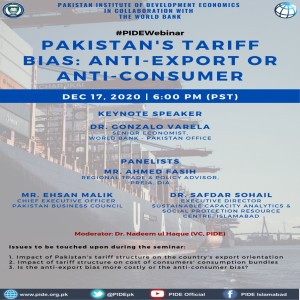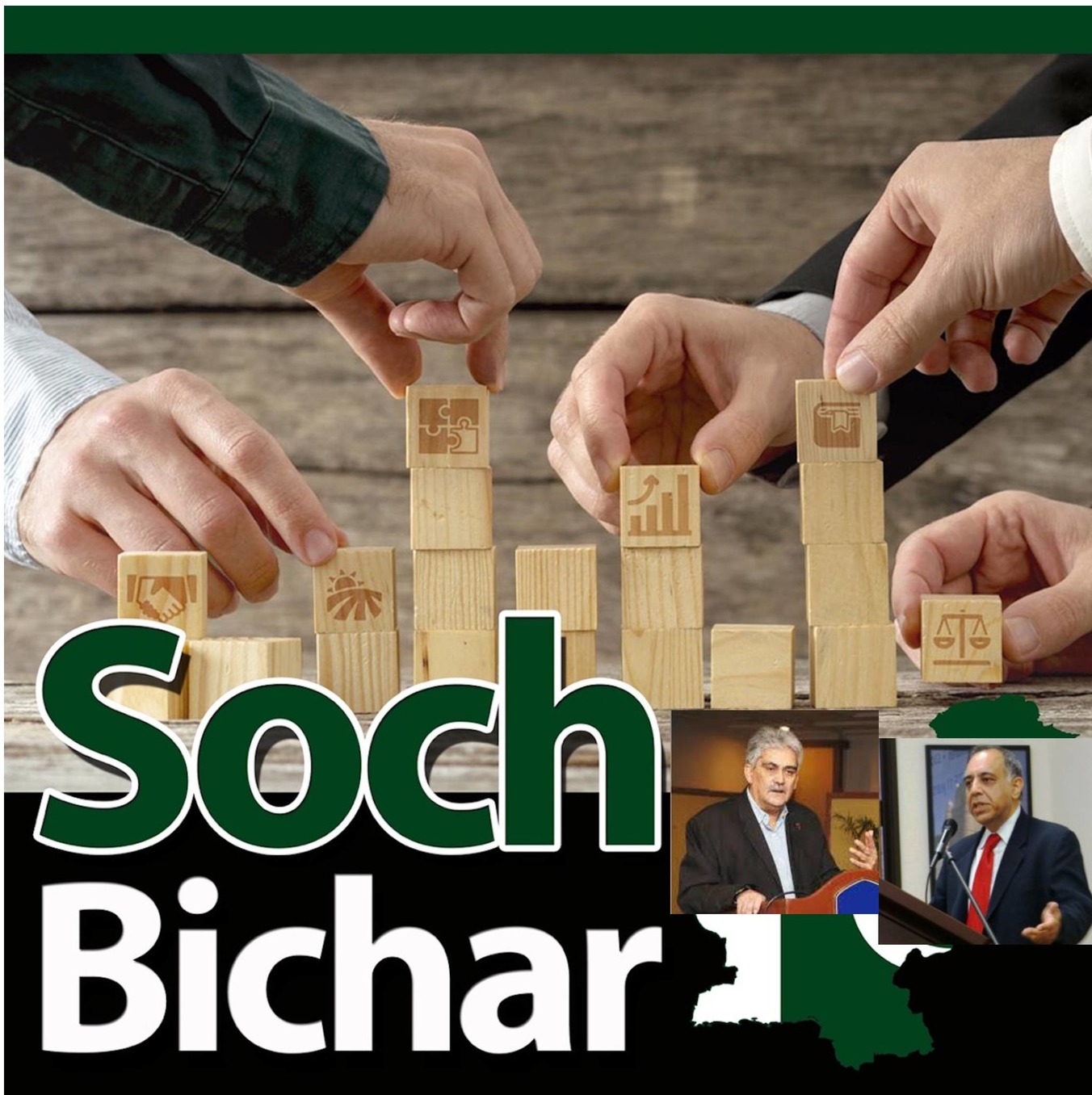Episodes

Monday Dec 21, 2020
Pakistan’s Tariff Bias: Anti-Export or Anti-Consumer
Monday Dec 21, 2020
Monday Dec 21, 2020
Concept Note
Import tariffs have long been used for protecting an economy's domestic industries from external competition. More recently, the emergence of global value chains as an integration platform into the global marketplace has stressed the importance of reducing import tariffs on parts and components that cross international borders several times, before they get assembled into a final good. A stream of literature has emerged on how reducing tariffs on intermediates and raw materials can allow firms to leverage technologies embedded in foreign products as an means of productivity growth.
Yet, tariffs on final goods still matter. When countries choose to decrease import tariffs on raw materials and intermediates but keep high tariffs on final goods (a tariff structure known as ‘cascading’), then firms’ profit margins increase, as their costs of production fall, but the price at which they sell their output remains higher than in international markets by virtue of the tariff on the final good. This effective protection that results from cascading has another unintended consequence: it makes exporting relatively less profitable than selling domestically. Essentially, these high tariffs on final goods act as an implicit tax on exports. Aside from increasing the price that consumers pay for these final goods.
Despite pursuing an export promotion strategy, Pakistan has a marked cascading structure in tariffs. And while average import duties have mildly declined recently, the cascading has not. At the same time, the economy has increasingly become more inward looking, with export to GDP ratio falling from 16 percent in 1999 to 10 percent in 2019.
What is more costly for the economy? The anti-export or the anti-consumer bias these tariffs introduce? This webinar will discuss the tariff structure of Pakistan, and its effects on export orientation of the economy and on the cost of consumers consumption bundles.
Keynote Speaker
Dr. Gonzalo Varela, Senior Economist, World Bank
Panelists
Mr. Ahmed Fasih, Regional Trade & Policy Advisor, PREIA, DIA
Mr. Ehsan Malik, Chief Executive Officer, Pakistan Business Council
Dr. Safdar Sohail, Executive Director, Sustainable Capacity Analytics & Social Protection Resource Centre


No comments yet. Be the first to say something!